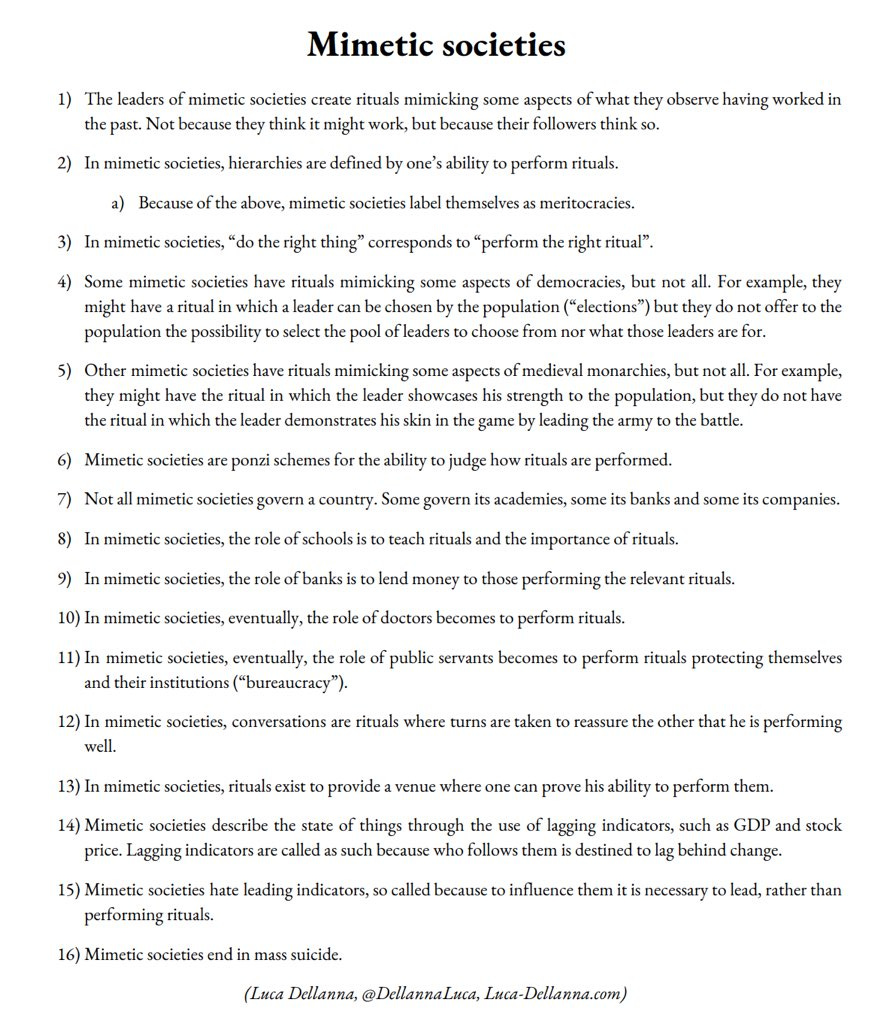Queen of Dulls
press lever, get cheese
She is ruler. Her light shines the most middle.
Christopher Rufo has done remarkable work in showing us the emptiness of the people who lead cultural institutions. This week, his long journey through the deep thoughts of new NPR President Katherine Maher has a kind of artistry to it, like Marcel Duchamp displaying that toilet. The world has gathered to ponder the meaning of the object.
She is exactly…that person, and everyone who has worked in the culture industries has worked for one of those, or for ten of those. She’s so entirely a type that yes, you wonder if there’s a person underneath it. The NPR president is the NPC president. She is for [current thing] the very most.
But the point of all of these astonishingly dull slogan-chanters who are the presidents of things is that they’ve successfully spent their adult lives making the empty display that allows people to become the presidents of things. Insert usual references: Christopher Lasch, new elite credentialed by their opposition to middle America; Angelo Codevilla, ruling class formed by a shared social canon and a signaling language; Nicholas Clairmont, woke gestures as a “language of privilege”; Luca Dellanna’a summary, mimetic societies.
The dull members of the new elite are appalling, they’re empty, they make sane people shudder, and they won the game they set out to play. They responded to incentives: in a world that elevates the dull, they carefully performed dullness. Quick reminder that the empty dullard Claudine Gay, having been please-quit-immediately-fired as the president of Harvard, is now a life-tenured Harvard professor at her presidential salary of not quite $900,000 a year. She’s the Nolan Ryan of being a dullard. There should be a hall of fame. As Rufo writes about the NPR leader:
On every topic, Maher adopts the fashionable language of left-wing academic theory and uses it as social currency, even when her efforts veer into self-parody. She never explains, never provides new interpretation—she just repeats the phrases, in search of affirmation and, when the time is right, a promotion.
Maher understands the game: America’s elite institutions reward loyalty to the narrative. Those who repeat the words move up; those who don’t move out.
Returning for the third time in a week to Matthew Crawford and his book on the meaning of driving, possibly triggering some sort of requirement that I pay royalties to him or adopt his last name, the way we live teaches us to live inside the thing that teaches us how to live. We’re endlessly enculturated and shaped by the things we do because of the things we have and use. Driving a pre-chip car with paper maps shapes us, neurologically, by constantly demanding our attention, our predictive ability, our social knowledge of other drivers, our capacity to read emerging hazards, our ability to act on our knowledge of the limits of the car, and so on; riding passively in a self-driving car teaches us how to sit there. It teach brain, brain go pudding, brain not do stuff.
Katherine Maher is who we’ve taught ourselves to elevate to status. She is an authority without having authority, a leader for the culture of the black box: you should do X because obey the science and don’t do your own research. “Our politics have at bottom become an epistemic quarrel,” Crawford writes, “and it is not at all clear to me that the well-capitalized, institutional voices in this quarrel have the firmer ground to stand on in claiming the mantle of legitimacy — if we want to continue to insist that legitimacy rests on reasonableness and argument.”
What Katherine Maher’s cultural status tells us is that narrow-we may as a subculture want to continue to insist that legitimacy rests on reasonableness and argument, but institutional global-we is laughing out loud at the premise. Authority in the age of technological and institutional opacity is becoming tautological: people with authority have authority because they are people who have authority.
I’m kind of amused by this, and picturing a world that divides into parallel systems of people who allow their knowledge to be curated by tech companies, use autonomous machines to do their work for them, and accept empty authority — and people who fight to remain human.
My guess is that your instinctive response to Katherine Maher tells you which camp you’re in. As for me, I just spent a full ten seconds trying to delete an eyelash from my computer screen, so maybe you should all just leave me behind and soldier on.



funny, except NPR is tax payer funded. We the People, at gunpoint, are paying this naval gazer to post her communist drool. we are the country our founders fought against.
I hope you saw Matt Taibbi’s piece where he places Mahers’s tweets side by side with similarly themed gems from parody account Titania McGrath.